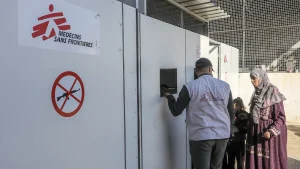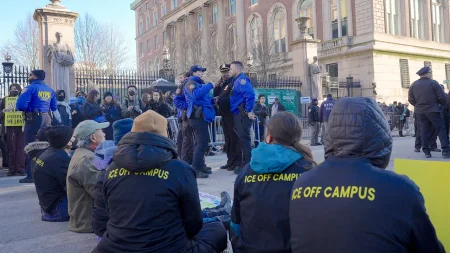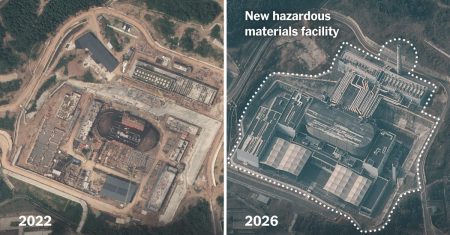International Hesitancy Surrounds Trump Peace Plan’s Gaza Security Force Proposal
Nations Question Feasibility and Risks of Proposed Multinational Presence
In a bold diplomatic initiative that has sparked intense international debate, former President Donald Trump’s peace plan for the Middle East has called for the establishment of an international security force in the Gaza Strip. The proposal, aimed at stabilizing the volatile region and creating conditions for lasting peace, has encountered significant resistance from potential participating nations. Countries that might be expected to contribute troops to such a mission have expressed deep reservations about the dangers involved, ambiguities surrounding the mission’s parameters, and concerns about being perceived as occupying forces in a historically complex and sensitive region.
The concept of an international security presence in Gaza comes amid decades of cyclical violence and failed peace initiatives in the Israeli-Palestinian conflict. Trump’s plan envisions multinational forces serving as peacekeepers and security guarantors in a post-conflict Gaza, potentially creating a buffer between Israeli forces and Palestinian civilians while supporting governance transitions and reconstruction efforts. Proponents argue such a force could prevent the security vacuum that has repeatedly allowed militant groups to consolidate power in the territory. However, diplomatic sources familiar with ongoing discussions reveal that even traditional U.S. allies have approached the proposal with considerable caution, citing the troubled history of previous international interventions in the Middle East and the unique challenges presented by Gaza’s dense urban landscape and complex political reality.
Historical Precedents and Contemporary Challenges Fuel Diplomatic Wariness
International peacekeeping missions have a checkered history in the Middle East, contributing significantly to the reluctance many nations are expressing toward this latest proposal. The experiences of multinational forces in Lebanon during the 1980s, which culminated in the devastating 1983 bombing of U.S. Marine barracks in Beirut that killed 241 American service members, remain a sobering reminder of the potential costs. More recent missions in Iraq and Afghanistan have further reinforced the dangers and challenges of foreign military presence in the region. “There’s a profound institutional memory within many defense and foreign ministries about the risks of becoming entangled in Middle Eastern conflicts without clear exit strategies,” explained Dr. Sarah Levinson, director of the Center for International Security Studies at Princeton University. “The Gaza situation presents even greater complexity due to its extremely confined geography, dense population, and the multiple armed factions that operate within its boundaries.”
Security analysts point to the fundamental paradox inherent in the proposal: the very conditions that make an international security force seemingly necessary are precisely those that make it exceptionally dangerous to deploy. Gaza’s approximately 140 square miles house nearly two million residents in what has been described as one of the world’s most densely populated areas. The territory’s infrastructure has been severely damaged by repeated conflicts, creating operational challenges for any incoming force. Moreover, the complex web of militant groups operating within Gaza, with varying degrees of popular support and ideological positions, creates an unpredictable security environment where peacekeepers could quickly find themselves targeted. “Any force entering Gaza would face significant operational constraints,” noted General (ret.) Michael Harding, former commander of multinational forces in the Sinai Peninsula. “They would need to navigate destroyed urban terrain, potential hostility from segments of the population, and the very real risk of being drawn into localized conflicts that could rapidly escalate.”
Mission Ambiguity and Mandate Concerns Heighten International Reluctance
Perhaps the most significant obstacle to garnering international support for the security force initiative lies in the perceived ambiguity surrounding its mission parameters. Diplomats from several European and Arab nations, speaking on condition of anonymity due to the sensitivity of ongoing negotiations, have expressed profound concern about the lack of clearly defined objectives, rules of engagement, and exit strategies. “Before committing troops to such a volatile environment, governments need precise answers to fundamental questions,” said Ambassador Javier Morales of Spain during a recent European Union security conference. “What exactly would be the mandate of this force? Would it have authority to engage militant groups? How would it interact with Israeli security forces? And perhaps most importantly, what constitutes mission success, and when could these troops return home?” These unanswered questions have created significant hesitation among potential contributing nations, with many fearing a scenario where their forces become indefinitely entangled in a conflict with no clear resolution.
The operational challenges extend beyond security concerns to questions of political authority and governance. Any international force would inevitably become entangled in the complex power dynamics between competing Palestinian factions, Israeli security imperatives, and regional influences. Without clear political structures in place, peacekeepers could find themselves operating in a governance vacuum or, worse, becoming de facto administrators of the territory. “International forces require a legitimate political framework within which to operate,” explained Dr. Nadia El-Rashidi, senior fellow at the Cairo Institute for Regional Security Studies. “Without consensus among Palestinian factions, Israeli cooperation, and regional buy-in, any security force risks becoming viewed as an extension of external interests rather than a neutral stabilizing presence.” This governance challenge is particularly acute given the fractured nature of Palestinian politics and the competing claims to legitimacy among different political actors in the territory.
Occupier Perception and Regional Dynamics Complicate Diplomatic Calculations
Perhaps the most emotionally charged concern for potential contributing nations is the fear of being perceived as occupiers in a region with a long and painful history of foreign intervention. Middle Eastern populations maintain strong historical memories of European colonial presence and more recent Western military interventions, creating a challenging environment for any international force regardless of its intentions. “The optics matter enormously,” said Dr. Khalid Al-Mansour, professor of international relations at King’s College London. “Even forces operating under United Nations mandates with the purest humanitarian intentions risk being viewed through the lens of occupation by significant segments of the local population and the broader Arab world.” This perception problem creates political risks for contributing nations, particularly those from the Middle East and North Africa who must consider domestic public opinion and regional relationships.
The complex regional dynamics surrounding the Israeli-Palestinian conflict further complicate diplomatic calculations. Traditional U.S. allies in Europe and the Middle East must balance their relationships with both Israel and Arab states, while considering their own domestic political constraints and historical connections to the region. Many potential contributing nations fear becoming caught in regional power struggles or being seen as taking sides in a deeply polarized conflict. The Trump peace plan itself has been a source of controversy, with critics arguing it favors Israeli interests over Palestinian aspirations. Countries considering participation in a security force must therefore navigate these perceptions carefully, weighing the diplomatic benefits of supporting U.S. initiatives against potential regional and domestic backlash. “Contributing troops to a Gaza security force isn’t simply a military decision—it’s a profound diplomatic calculation with far-reaching implications for a country’s standing in the Middle East and its relationships with key regional powers,” noted Ambassador Jonathan Reinhardt, former EU special envoy for the Middle East Peace Process.
As diplomatic discussions continue regarding the feasibility and implementation of an international security force in Gaza, the fundamental challenges of danger, mission clarity, and perception remain significant obstacles to gathering the necessary international support. The success of any such initiative will ultimately depend on addressing these core concerns through detailed operational planning, clear mandate definition, and the creation of broad regional and international consensus. Without such foundations, the proposal risks joining the long list of well-intentioned but ultimately unimplemented peace initiatives in this troubled region. As one European diplomat succinctly summarized: “Peace in Gaza cannot be imposed from outside. Any international security presence must be part of a broader political solution embraced by the parties themselves—otherwise, we risk creating another failed intervention with potentially catastrophic consequences for regional stability and the troops involved.”










